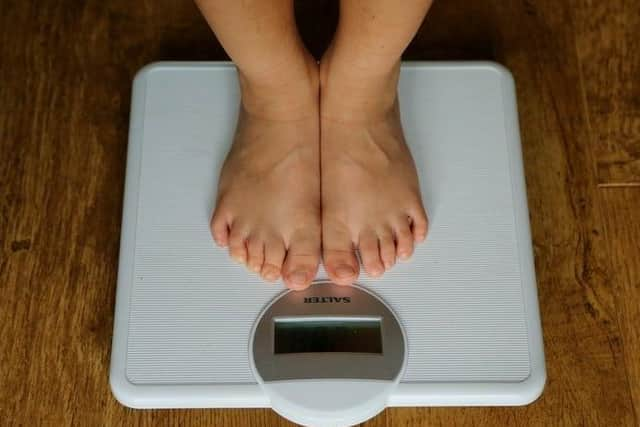Rise in body image concerns and anxiety, Yorkshire academic warns
and live on Freeview channel 276
The rise in the number of eating disorders revealed in a wide-ranging survey has accentuated concerns that young people are facing increasing anxiety over how they are perceived amongst their peers.
Dr Stuart Flint, from the University of Leeds, has now called for the review for social media companies to take steps to restrict and prevent potentially harmful information from being disseminated to the public.
Advertisement
Hide AdAdvertisement
Hide Ad

He told The Yorkshire Post: “The results of the survey are concerning, but unfortunately unsurprising given the societal view of weight, where thin and athletic body sizes are celebrated, whilst overweight and obesity are stigmatised.
“The focus and in many instances, pressures relating to body size and shape has led to a rise in body image concerns and anxiety which inevitably has influenced our relationship with food and associated behaviour.”
The annual Health Survey for England which was published this month found one in six adults in England has a possible eating disorder, including 28 per cent of women aged 16 to 24.
The study found that 16 per cent of adults in 2019 screened positive for a possible disorder, including four per cent who said their feelings about food interfered with their ability to work, meet personal responsibilities or enjoy a social life.
Advertisement
Hide AdAdvertisement
Hide Ad

Among women, those under 35 were most likely to have a possible eating disorder – 28 per cent of those aged 16 to 24 and 27 per cent of those aged 25 to 34.
The findings are around double the comparable figures in a 2007 adult psychiatric morbidity survey which estimated that just six per cent of adults had a possible eating disorder.
Dr Flint, an associate professor at the School of Psychology, for the University of Leeds, added: “Unfortunately, social media provides a platform where people are accessing unevidenced, harmful content that can increase concerns about body shape and appearance, increase mental health conditions such as depression and anxiety, and in some cases encourage unhealthy eating behaviours.”
Dr Flint added increased pressures brought on by the pandemic could have led to more people reporting they had disordered eating with the lockdown placing more pressure on those with eating disorders, as exercise is restricted, face to face hospital appointments are cancelled and people bulk buy in supermarkets.
